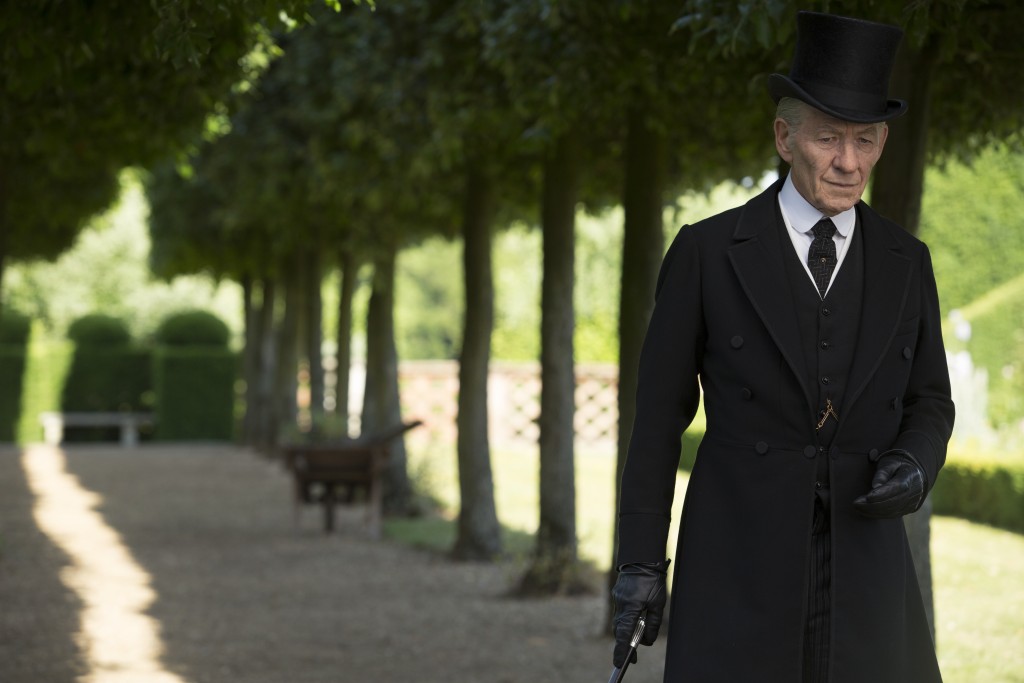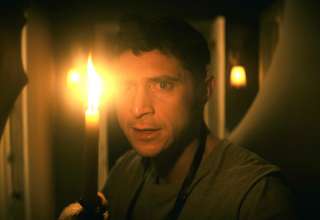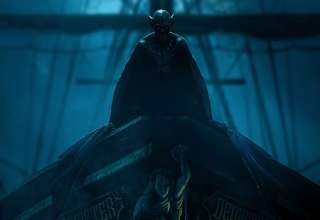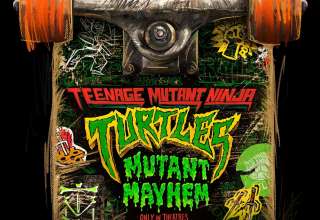Making a film that puts the spotlight on an aging Sherlock Holmes is a great idea that I’m surprised to see that no one has actually done yet. Just predicated on that premise alone, there are plenty of things that can be done while working on a small budget provided that the filmmaker has some fresh ideas. That’s what Bill Condon was thinking about when he got behind the camera for Mr. Holmes.
Ever since returning from a journey to a devastated Japan, Sherlock Holmes (Ian McKellen) has been living a quiet existence in a remote farmhouse. It’s not what he wants, but his failing health doesn’t really allow him to do the things that he became famous for years earlier. Of course, this doesn’t sit well with the old sleuth, and he’s unable to find rest as he remains hopeful that he can still somehow close a case that went unsolved and essentially forced him into retirement.
Although the idea of a movie being made about an old Sherlock Holmes is intriguing, Bill Condon doesn’t do it any justice. Instead of a film that’s well put together, Mr. Holmes quickly becomes congested and erratic in terms of tone and fluidity as it attempts to fit multiple stories from different periods of time into one film. In truth, there’s no need to even include any of the Japanese plot line since everything wrapped around it works just fine without it. Perhaps this is what could have made it all more watchable and easy to follow. There’s already a connection between the tale from the present (1947) and the tale from over thirty years earlier that went unresolved, so all they had to do was go with that.
Instead of doing this, the audience is forced to sit through this unstable film while trying to maintain interest. Under normal circumstances, you want to be able to use your brain in order to follow a story that has the ability to seduce and mesmerize. However, with Mr. Holmes, you’re using that brain of yours just to attempt to figure out what’s going on and when it’s all taking place since it jumps from place to place with no warning.
The final third of Mr. Holmes does stabilize and represents a large step up in cinematic quality compared to all that comes before it. Not only does the story it’s telling finally become clear, this is also where the actors get to show more personality. In the early going, their characters are lifeless people living a seemingly basic and uninteresting existence. Once we get passed all of that, Sherlock Holmes and the others suddenly come to life and allow us to actually get drawn in to what’s taking place for them in this period of time.
When looking at it as an entire picture, Mr. Holmes only has one significant issue that prevents it from being an entertaining drama about the legendary investigator in his later years. Unfortunately, that one issue is an extremely large one that should have been cut down. It’s kind of odd to suggest that a film be trimmed from a book even more than it already will be, but that’s exactly what this needed if it wanted to succeed.
The one thing I’m learning myself is that adding features to a film that aren’t necessary can seriously disrupt or damage good ideas. Taking out this one element would have made the movie much shorter and probably would have taken away from the story that’s in the book it’s based on, but the benefits would have been far greater if they just used what they had. Doing this would have made this an affair that had focus while giving it an actual opportunity to be more than just a small time picture with a popular character in the middle of it.
Rating: PG
Director: Bill Condon
Cast:
Ian McKellen
Laura Linney
Milo Parker
Hiroyuki Sanada
Film Length: 105 minutes
Release Date: July 17, 2015
Distributor: Roadside Attractions





















